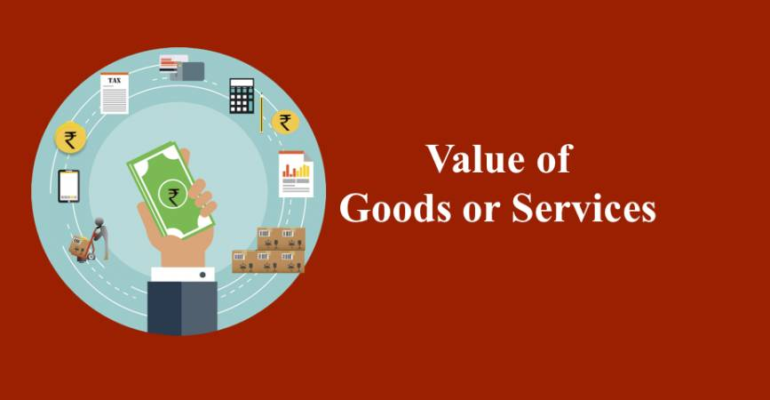
Value of Supply under GST
It is important to understand the valuation mechanism to arrive at the value on which tax is to be paid. The Goods & Services Tax is levied as a percentage of the value of supply, whether on goods or services. It is payable on the supply of goods or services for a consideration in whether or not the course of or furtherance of the business of person paying the tax.
Section 15 of the CGST Act 2017 describes the process of calculating the value of a supply which is made between unrelated persons and where the price is the only consideration for the supply.
Definitions
For a better understanding, it is imperative to understand the meaning of a few important terms which have been explained below:-
Value of Supply – The value of supply of goods or services or both will be considered as the transaction value, which is the price paid or payable by the person, where the supplier and recipient of the supply are not related and the price is the sole consideration for the supply.
- Consideration – The term means any payment made now or later, in the form of money or any other form, by the person in receipt of goods or services and the monetary value of any act. The above definition shall not include subsidy given by Central Government or The State Government and deposits made unless the supplier approves the deposit money as consideration for such supply.
- Money – The term money means any valid legal tender money, Net Banking, Letter of Credit, cheque, draft, Bill of Exchange, Promissory note, E-wallets. However, any currency held for its numismatic value shall not be regarded as Money.
- Related persons cover a list of persons such as-
- officers, directors, partners in businesses,
- Employer-employee or principal-agent,
- Associate of one another,
- Control, joint control, and common control,
- Members of the family
Points included in the calculation of Transaction Value
- Taxes excluding GST – Any type of tax that is levied under GST law shall not be considered as a part of the value of supply. And all the other taxes, fees, cesses, etc. shall be considered as a part of the value of supply.
- Payments made by the recipient on behalf of supplier to the third party – In case of a particular supply of goods or services where the supplier pay some expenses which have to be incurred by the recipient and these expenses are paid by the supplier to the third party himself but not included in the price, such consideration shall be treated as part of the value of supply.
- Incidental expenses– Any other expenses incurred by the supplier in the facilitation of supply of goods or services such as commission, packing, installation, inspection, certification, etc. with supply before or at the time of delivery shall be added to the value of supply.
- Penalty, Interest and late fee for Late payment – The total amount of the value of supply shall include the amount charged as interest or penalty for making delayed payments. For example – A supply of Rs. 5000 with 12% chargeable as interest, is made at the credit period of two months. The payment is made in 3 months. In this case the interest for one delayed month i.e. Rs. 50 (5000*1%) shall be added to the value of supply. Hence, the total amount of supply shall be Rs. 5050/-.
- Subsidies – It is a sum of money provided to keep the price of a good or service low. But, when such amount is directly provided by the Central Government or state government, the amount shall not be taxable and the value of supply after deducting this amount shall be taxable. And, when such amount is provided by a person or entity other than the Central Government or State government, the whole amount shall be taxable in the value of supply.
Points excluded in the calculation of Transaction Value
- Discounts before or at the time of supply – The amounts of discounts given before or at the time of supply are allowed to be deducted only when proper invoices have been made of such supplies. For example – XYZ Ltd. gives a discount of 15% on a carton of perfumes of the amount Rs. 10,000. Here, the taxable amount of value of supply shall be Rs. 8500 because the discount amount was known at the time of supply and shown in the invoice properly.
- Discounts after supply – The amount of discounts given after the time of supply is allowed to be deducted only when the following conditions are satisfied:
- Such a discount is allowed when it was known previously in terms of the agreement.
- Such a discount has been recorded invoice-wise.
- The Input tax credit should have been reversed by the recipient as proportionate to a discount.
The above understanding of the content leads to the basic conclusion that the value of supply of goods or services or both will be considered as the transaction value, which is the price paid or payable by the person, where the supplier and recipient of the supply are not related and the price is the sole consideration for the supply.
Here at AJSH, we assist our clients in getting updated information about the recent changes, in filing of GST returns, GST assessments and GST audits. If you have any questions or require any assistance in this regard, kindly contact us.